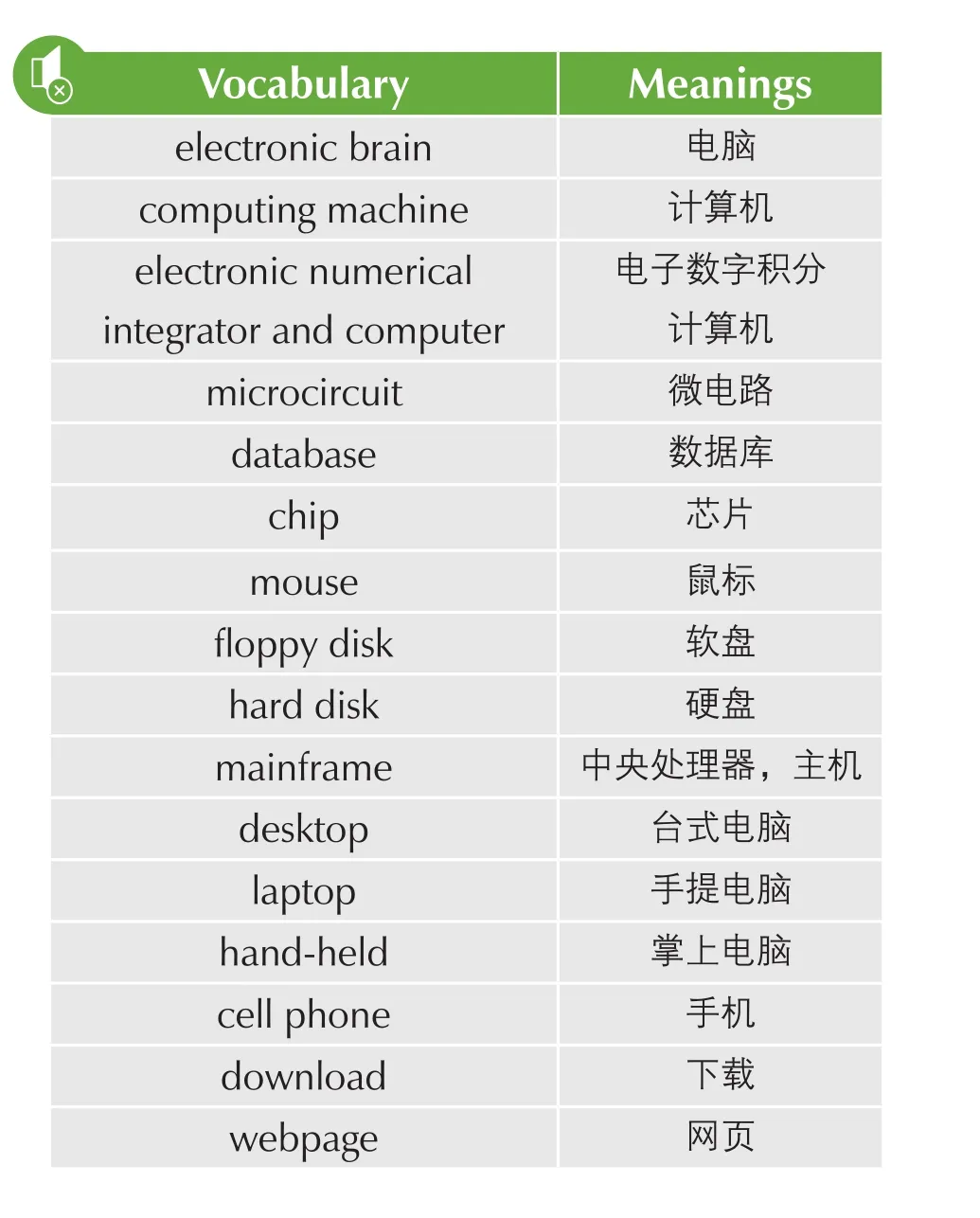VOCABULARY DEVELOPMENTiN THE 20TH CENTURY
2018-02-06ByMelvynBragg
⊙ By Melvyn Bragg
听力难度

英式发音 适合精听
语速:160词/分钟
英语与其他语言一样,并不是一成不变的,而最能反映其变化的就是词汇。在历史长河里,英语词汇随着政治、经济、科技、文化等各方面的发展而发展。有的词汇含义有所扩充,有的含义有了全新的变化,新词汇源源不断地加入英语的行列。词汇变化最明显、最引人注目的时期,莫过于社会飞速发展的20世纪了,请看——
Early 20th Century 20世纪初期
There were now two Englishes, or one language that we might call English-American or American-English, and the story of the last century is how these two Englishes have grown together, sometimes in harmony[和谐],sometimes in competition.
America was flexing[显示力量]its economic muscles at that time, and the words and phrases reflect that. Big business, executive,well-heeled, fat cat, go-getter, and yesman, as well as assembly line and closed shop—they’re all American English.
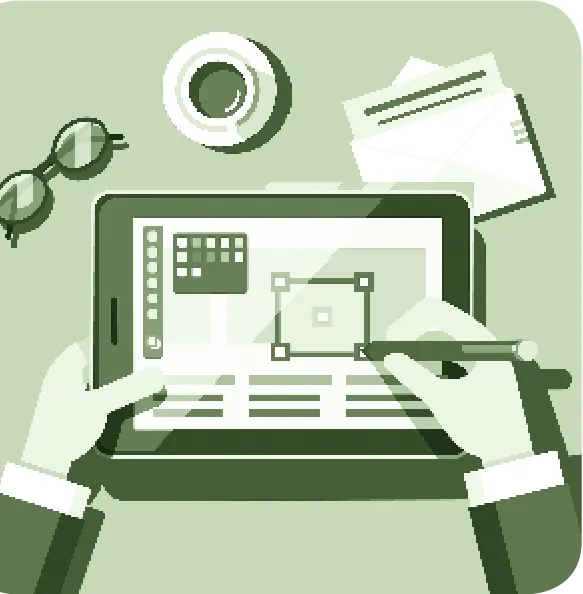
Europe had its towers, but it took America to build and to name that quintessential[典型的]image of the country,the skyscraper. The first skyscraper ever was built here in Chicago in 1885. It’s been knocked down, but this one was built soon afterwards. It’s now the oldest one still standing in Chicago. Now it’s a hotel.
Hotel, in the modern sense, is an American word. In French, it just meant a large, private house. And it was in America that they first called this reception area a lobby, with its desk clerk dressed in black,of course, at the front desk, its bellhop and its concierge, another European word given its modern meaning in America. To get to your penthouse[顶层套房], if you should be so lucky, you would, of course, need an elevator. English already had the rather less technical word lift.
You can see it everywhere, and a hotel gives us quite a few examples. In England, we would have a wardrobe. This is a closet. In England, we would have a bathroom. Well,that’s the same. But it could also be called a washroom. The tub with a faucet, not a bath with a tap. And when we go into the bedroom—well, at least that’s the same word—we find that the window has drapes, not curtains. The bed has covers, not bedclothes.Instead of a dressing gown,here’s a bathrobe. Beside the bed, there’s a nightstand,not a bedside table, and somewhere there’s a trash can, not a wastepaper basket.
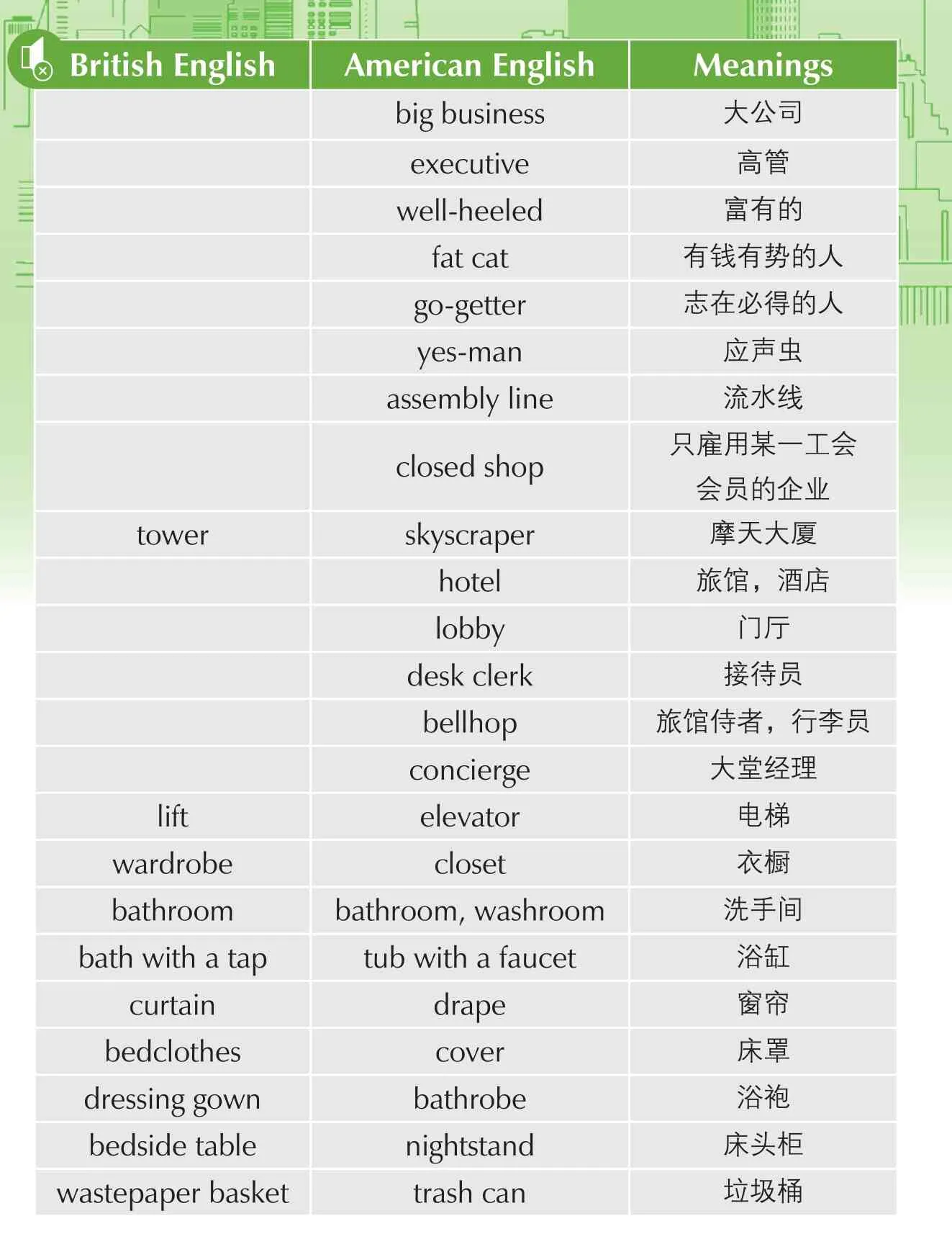
American Industrial Expansion美国工业扩张时期
While Europe had been burning, the USA had experienced massive industrial expansion. The factories of the northern states needed new workers and the poor of the South, many thedescendants[后裔]of former slaves, saw the opportunity they offered and moved in. Themigrants[移居者],overwhelmingly[压倒性地]black, came to the cities of the north, cities like Chicago,pounding[机器轰鸣]with growth then and pounding with growth now.And they changed America. They also changed the English language. In the 19th century, almost all Afro-Americans had lived in the South. By the end of the century, 95% were up in the North.
And they injected a new energy into the language. They brought African speech,African rhythm, new vocabulary.
What brought black and white together and put black speech into mainstream American was music. First jazz, then blues.New words and expressions started toaccompany[伴随]the soundtrack[音乐]of what America is perhaps best known for—popular culture.
Today, the language would be unimaginable without itscolonization[大批移植]by words and expressions of black and African origin.
The very words jazz and blues arrived from Afro-American speech at the beginning of the century. The African word hipikat, meaning“attuned[与……协调]to the environment” or “with his eyes open,” gave us hepcat, and, later,hip and cat. Later still, of course, its meaning grew to include the idea of hippy.
White Americanembraced[接受]black American speech when people started to dance the hootchy-kootchy and then the cake-walk,the shimmy, jive, and boogie-woogie.
Black American expressions are now so mainstream that it’s forgotten almost all Americans and very many British, including almost all youth, now speak some sort of“black.” Young people want to be cool or bad, which was first recorded as meaning“good” in America in 1928. Others might want to be groovy or mellow, which came from “melody” in jazz circles in the early’40s. Square is out, but it may come back.
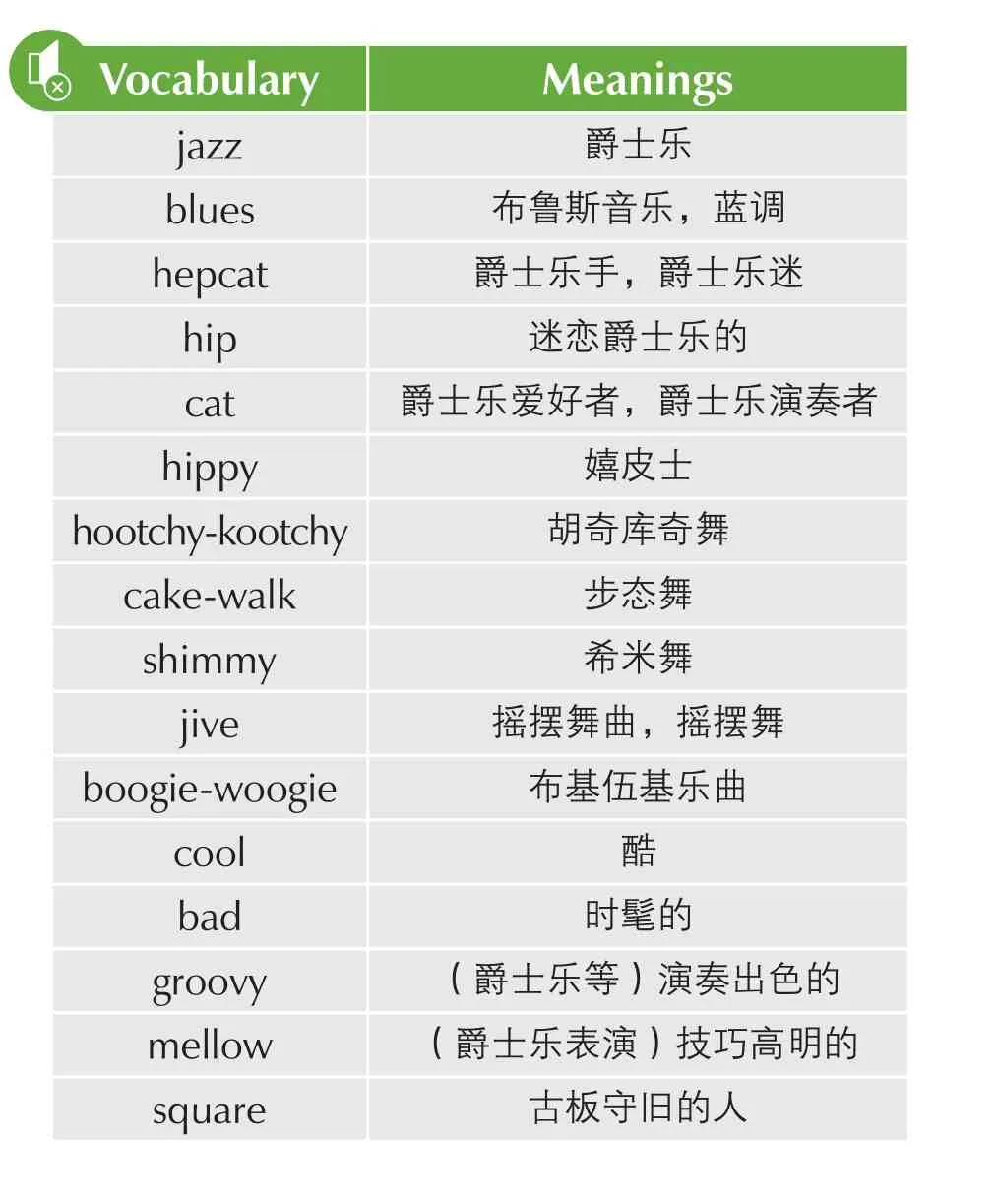
WWII 第二次世界大战
The hostile Nazi invasion[入侵]never came, but in 1942, a friendly American one did. Nothing couldreverse[逆转]the effects of suchsustained[持续的]exposure[接触]to American English.
TheG.I.s[美国兵]introduced words like beefburger, crew cut, and disc jockey, gizmo,gobbledygook, pin-up, and G.I. bride.
But the traffic was not all one way. The Americans published this book, A Short Guide to Great Britain, the War and Navy Department, Washington, D.C., for all their troops in this country. It’s very friendly, and, I think, acute about the British.
“The British are reserved[矜持的],” it says,“but not unfriendly.” Then it describes it.“Don’t show off,” it says, “The British dislike showing off. Don’t say you’ve got too much money. You’ve got much more than the British, and don’t show off about this.”
They learned how to eat. They learned that French fries were chips and a smoked herring was a kipper. They learned that bowling alleys and ten pins were skittle alleys with nine pins, and that instead of OK, they should say righto.
By 1944, on the eve of D-Day, 1.5 million United States soldiers werebilleted[驻扎]around Britain. The Americans eventually returned home. But the language they brought with them has stayed ever since, and English wasmassively[强有力地]enriched.
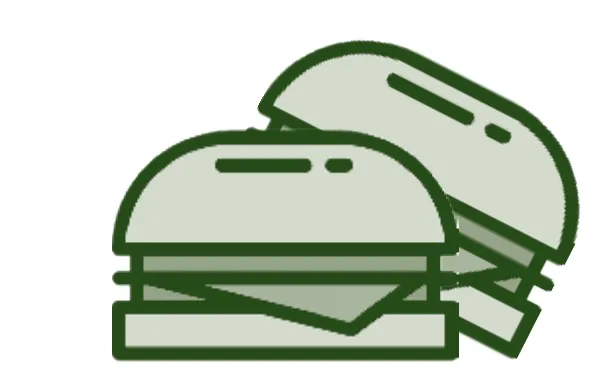
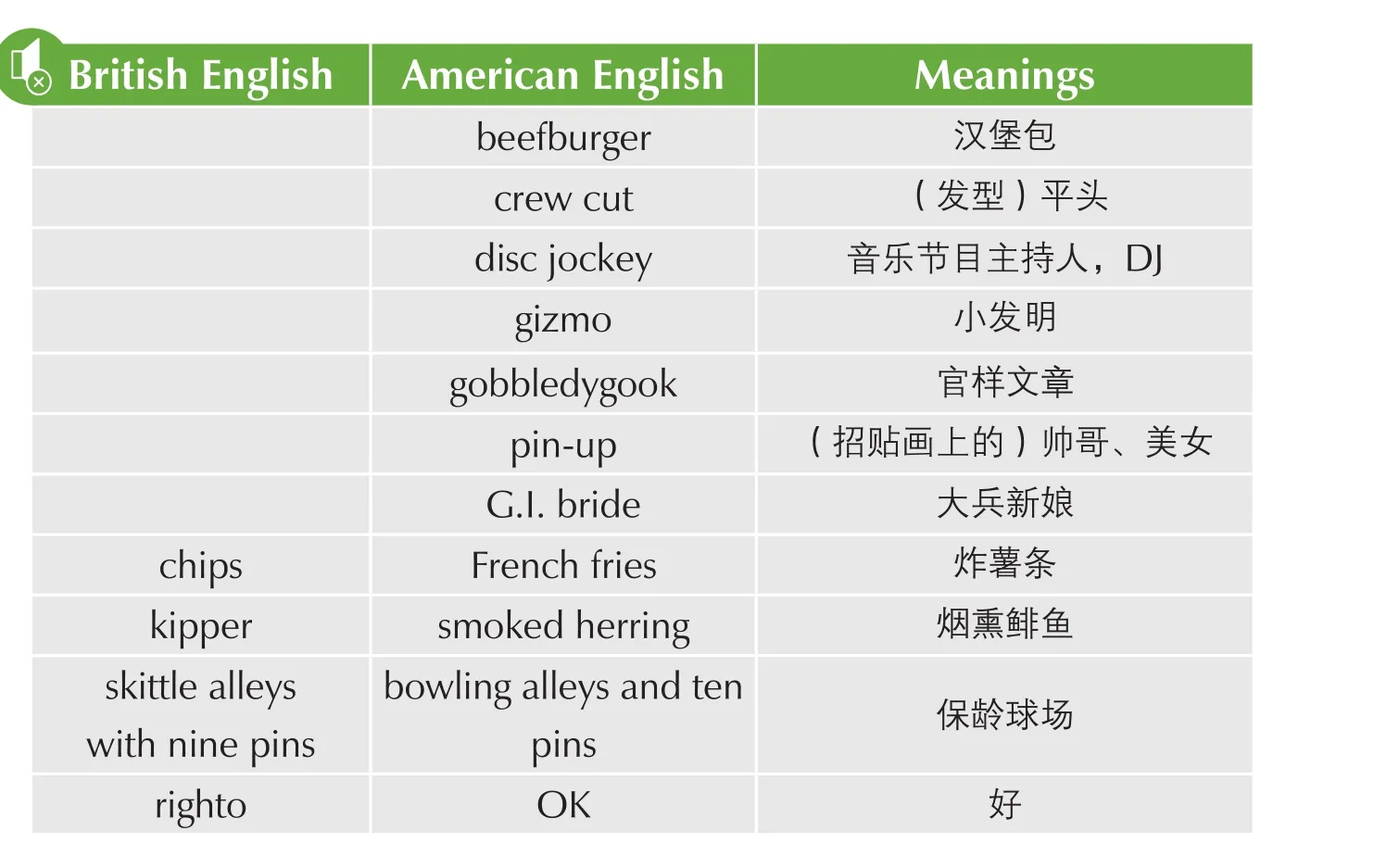
Computer Age 计算机时代
Perhaps the mostdesirable[让人满意的]consumer product at the end of the 20th century was first developed in England, in Manchester. It made the English language adapt and expand to a whole new vocabulary.
In 1948, this was the state of the art of what theboffins[科学家]were calling the electronic brain, the computing machine,or the electronic numerical integrator and computer. The Baby, as this rather large piece of hardware waschristened[取名], was the first to store a digital programme in its 2048-bit memory. In the years since Baby received its first input of data, the computer and its vocabulary have embraced the microcircuit, the database, the chip and the mouse, the floppy disk and the hard disk.We’ve progressed from the mainframe to the desktop, the laptop to the hand-held,and now even a cell phone can download information from the Internet.
And with an estimated 85% of the world’s webpages being written in English,this newest technology has become one of the greatconduits[渠道]taking the English Language around the world.
